|
Farmer Mike wrote this article that was originally published in the Courier-Tribune newspaper. We thought you might enjoy a good laugh right now so we're sharing it on our website too. My love of language has largely been shaped by one word: immigrant. I was 9 months old when my dad was stationed at a NATO base near Thorshavn on the Faroe Islands. The sound of my mother tongue, Danish, suddenly unfolded into Faroese. Two years later we moved to Rhodesia (now Zimbabwe). My dad found work as an electrician, my mom as a patternmaker at a textile mill. My folks taught English speaking daycare staff 2 Danish words: spise (eat), drikke (drink) and one Faroese word, kooka (poo) so they could communicate basic toddler with me. Immersed in a new culture, my English flourished. I also learned Ndebele (a Zulu dialect) words like cambalala (take a nap) and xhubha (brush your teeth), pronouncing my c’s, q’s and x’s with tongue-clicks. At home, Danglish, a hybrid of Danish and English developed. Being bilingual, I spoke Danglish without being conscious about what language each word was or in which order they came out. My parents understood me, I figured all other Danes would too. I was wrong. When I was hospitalized while visiting my grandparents in Denmark, I asked the nurse, who was moving me to another ward, a simple question: when are my parents coming to pick me up? He wouldn’t answer and the elevator full of people got strangely quiet. I was really frustrated! Years later, when I learned some Danish slang, I realized why. In my attempt at communicating in Danglish, I had asked a question about sex in Danish that would make 100 sailors blush! When I was 8, the war for Zimbabwe’s liberation intensified. The Rhodesian government enacted conscription for men, citizens and noncitizens, to fight against liberation. When my parents chose to leave, the government froze their bank account. They sold most of their belongings to pay for the train to Cape Town, South Africa and a two-week journey to Southampton, England on the RMS Pendennis Castle. Three months later we were on our way to Canada with immigrant visas. In Canada, I used English words for the first time that were nonexistent in my African home. Words like snow, sleigh, skiing, and tuque (toboggan). By the way a toboggan in Canada is a wooden sled that is curved up at one end, not a hat that keeps your ears warm. The English I learned in Africa confused Canadians. I had to replace words like headmaster (principal), lorry (truck) and biltong (beef jerky). I taught my new, mainly immigrant friends, Ndebele, the language of an African culture I felt a close kinship with and had been torn from so suddenly. In return they taught me to cuss in Spanish, Hindi, Vietnamese and Chinese. As I got older, I learned essential Canadian words like twofour, a case of 24 beers, and Molson Muscle, what your belly grows into if you drink too many twofours. Years later my wife and I immigrated to the UK from Denmark, revealing creative and humorous uses of English. The phrase “all talk and no trousers” means all bark and no bite. A “cheeky pint” is a beer that you probably shouldn’t drink but do anyway. I got a lot of ribbing when I told colleagues that my pants got dirty sitting on the bus on my way to work. Pants in the UK means underpants. The phrase “’Ere be dragons” essentially means stay away, danger. Look on old maps, you’ll see it used to mark places to avoid, like Wales. I would always chuckle when a friend would use it randomly - complete with pirate brogue - in response to questions like “What’s the food like at that pub?” or “How’s your wife doing?”. I had not worked in the UK long before a colleague uttered the words “Hansen, you’re mad as cheese!”, the word mad meaning crazy, not angry. A French coworker who referred to English beef as “crazy beef” during a mad cow disease outbreak would often be referred to as “mad as cheese” by this particular Englishman, to which the Frenchman would respond “everybody fug de cheese!”. Although their banter was lighthearted, they both confided in me that they disliked each other. The Frenchman added that he secretly delighted in the fact the Englishman’s name meant ‘no erection’ in French slang. My newest home as a serial immigrant is rural Randolph County, in North Carolina. The phrase “skinny minute” was one I’d never heard before, the most poetic way to express doing something quickly! My neighbor Robbie taught me, “I’ll holler at ya’”. It took me a while to learn that it was something he did over the phone. I’ve been caught out on my pronunciation of place names in the county. A few folks have corrected my mispronunciation of the nearby township of Erect, NC (pronounced eee-wrecked). In case you’re wondering Climax, NC is 25 miles north of Erect. Mike “Mad as Cheese” Hansen lives, works and enjoys a cheeky pint at Ozark Akerz regenerative farm near Coleridge with his wife, Missouri native Sue Meyer. Holler at him on ozarkakerz.com.
0 Comments
Soft Shell Eggs Soft shell eggs can occur in younger chickens or if the chickens don't get enough calcium. The egg shell doesn't form as it is developed and the hen lays the egg with a soft, leather like outer casing. We found 3 of them when egg production started increasing this spring. We increased the amount of oyster shells we put out for them and since then we haven't had any more soft shells.
Oyster Pastures, Cannibalism and Captain Tom's Sustainable farming is all about using what you have on the farm. Currently there are no oysters grazing our pastures. We could consider starting an oyster farm but that seems a bit excessive. We have heard of folks feeding egg shells back to their chickens. That seems a bit like cannibalism, not sure we're ready to take that step! Finally, we could talk to the Captain Tom's Seafood Restaurant down the road to see if they would donate their oyster shells. Of course we would need to consider the time and effort it would take to crush the shells. We only went through 5 pounds in the first 6 months and despite the increase in consumption right now, we might be buying shells for a while, especially at $10 for a 50 pound bag! Gumboze This week we're introducing a new section to the the Ekoze blog. Like the best Gumbo, the Gumboze section will have a little bit of everything, a farm-fact, a story about Sue or Mike or just something random. We promise it will always be entertaining, so check back often!
Have a great week y'all! Sue & Mike " Hippopotomonstrosesquippedaliophobia - fear of long words. Who ever came up with this word has no fear of irony! |
Categories
All
Archives
April 2024
Check out our YouTube channel
Copyright © Turboxark Inc 2014-2024 - Terms of Use
|
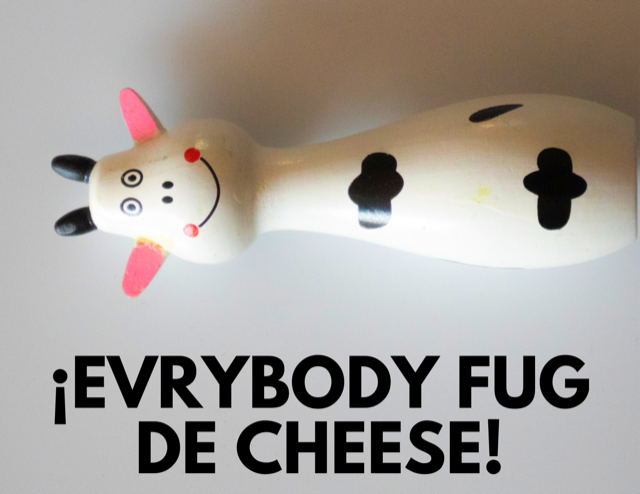
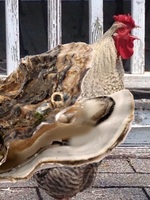
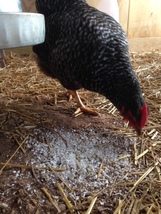
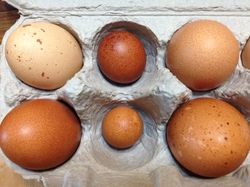
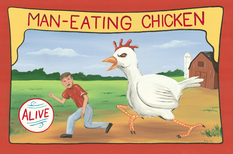
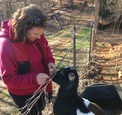

 RSS Feed
RSS Feed